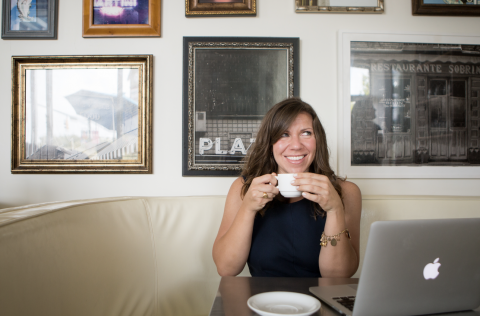Personal Branding Series, Week 1: Why Every Event Professional Needs One

If you think cultivating a personal brand is self-centered and self-serving, think again. Amidst the ongoing global pandemic, there’s never been a more important time to present yourself boldly and accurately online. In this four-week series, TSNN will feature four articles focused on personal branding: why it’s important, how to shape your existing assets into your brand, building the pillars of your brand foundation and creating a content strategy around your brand. Whether you’ve been furloughed or laid off during the pandemic and are searching for something new, are still employed by your current company or have ventured out to launch your own business during the past few months, this is for you.
So why exactly should you, as an event professional care about personal branding? “The thing that’s amazing about this is that everybody already has a personal brand,” explains D. Channing Muller, Chattanooga, Tenn.-based founder of marketing consulting firm DCM Communications. “We have just given a term to it that makes it more marketable and packaged.”
At the most basic level, a personal brand is how other people perceive you. Consider it your marketing “sticky message.” For event professionals, crafting your personal brand will allow you the option to continue to grow, both in your career and as a person. “Pandemic or no pandemic, it’s not a matter of whether you need a personal brand — you have one,” says Muller. “The question is: Are you going to let other people define it, or are you going to control the message?”
People are already talking about you and already have impressions of who you are as a professional and as an individual. Building your personal brand online in the form of your own website and across social media channels — and establishing consistency across each platform — lets you guide that narrative.
Muller adds that for the most part, job security is now a thing of the past, especially in the corporate world. “Until you’re the owner of your own company and your name is on the door, everyone’s replaceable,” she says. That means that you must demonstrate to other people what value you bring, not only to your current company but to anyone who encounters you. A personal brand is the ticket to doing this.
The beauty of this is that your personal brand can live entirely online, which has never been more important, in a time where we’re not traveling and meeting each other in person. The pandemic has proven to so many companies that nearly anything can be done remotely, and that it’s possible to develop relationships through a digital platform. “If you have a well-established personal brand, you don’t have to be physically anywhere except sitting on your sofa to have your thought leadership and expertise known,” says Muller.
Action Items
So what are the first steps you should take toward building a personal brand online — today? Muller shares her tips.
- Check your brand on Instagram, LinkedIn and Facebook. As much as possible you should have your name as your handle and make the URLs as clear as possible. It’s important to have consistency across platforms. While content can be tailored to each social media platform, anyone who visits your profiles on these should be getting the same well-rounded message.
- Buy your name as your domain. This means to get a website of yourname.com. Try to make it as simple as possible. If you have a name that people consistently misspell, try using your first initial and last name, or vice versa. You don’t have to build a website right away; simply set up a splash page that says your site is coming soon, with a quick descriptor of what you do: for example, “event professional, event designer, event marketer.” Add icons that link to your social media profiles and add a simple box that says how to get in touch with you.
- Think about the five things you want people to know you for. What are the five things you talk about the most? They can be super narrow, or wider buckets. For example, for Muller, her personal brand is built around marketing, as well as running, her dogs, beverages and heart health. Know that you don’t have to be 100-percent transparent about everything in your life to be authentic: Just because you can share it doesn’t mean you have to.
“I would encourage you that now is the time to open up,” says Muller. “The pandemic has humanized us all more; we’ve been forced to go behind the veil and see what people’s home lives are like. So that’s an opportunity to be a little more open.”
How will you get started with your personal brand? Share with us in the comments below, and stay tuned for parts two through four of this series.


Add new comment